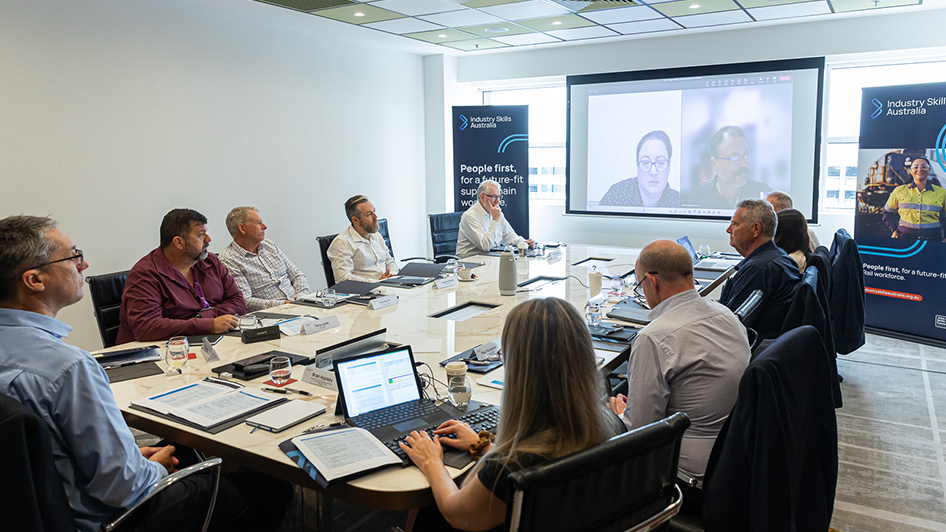qualification enrolments
workforce growth to 2029
Source left-right: Enterprises; ABS Counts of Australian Businesses, Online Vacancies; JSA - Internet Vacancy Index, Qualification Enrolments; NCVER, RTO's; training.gov.au, Workforce Growth; IBISWorld Industry Wizard.
The Australian Rail industry is an integral part of the economy and supply chain. The industry underpins Australian business, providing mobility to millions of passengers and vital freight services on over 33,000 km of track across the country. With $155 billion worth of rail infrastructure projects in the pipeline, existing shortages of labour can be expected to continue.
Increased demand for rail freight and strong expansions in passenger rail across States and Territories are factors driving skills demand. An ageing workforce is also contributing to the rail sector skills story.
In 2018, it was estimated that 20% of the rail workforce was expecting to retire by 2028. A lack of nationally consistent regulatory arrangements across the rail sector is a challenge that needs to be addressed to unlock productivity gains across the sector.
The industry employs more than 165,000 people directly and indirectly across private and public operators, passenger and freight operators, track owners and managers, manufacturers, infrastructure maintenance and suppliers. Australia’s rail network is the 6th largest in the world.
Rail Training Package
The Australian Vocational Education and Training (VET) system aims to provide individuals with work-ready skills for the labour market – skills that businesses and industries need to be highly productive and internationally competitive.
The TLI Transport and Logistics Training Package covers the vocational requirements including Rail Infrastructure, Light Rail, Tram and Train Driving, Rail Operations Management, Signalling and Safety Management.
Rail Strategic Workforce Planning Committee

Industry Skills Australia has established a Strategic Workforce Planning Committee for each major industry to sit at the heart of the Jobs and Skills Council. Comprising senior industry leaders, these Committees are the central mechanism through which industry is empowered to identify its immediate and emerging skill needs and the responses that are needed by the national skills system, industry and governments.
The Committees work on behalf of industry to shape and oversee the development of the National Workforce Plan based on intelligence and consultation with key stakeholders from across Australia. The Rail Industry Strategic Workforce Planning Committee membership was established in November 2023. The Committee comprises of:
- Brian Appleby (Chair), Public Transport Authority of Western Australia
- Shayne Kummerfeld (Deputy Chair), Rail, Tram and Bus Union – Queensland Branch (RTBU)
- Brendan Woods, John Holland Group
- Caroline Wilkie, Australasian Railway Association (ARA)
- Kate Alam, Pacific National
- Matthew Wheatley, TasRail
- Paul Baxter, Australian Manufacturing Workers Union – Queensland and Northern Territory Branch (AMWU)
- Timothy Pease, Aurizon
- Tony Landi, V/Line
For any enquiries about the Rail Strategic Workforce Planning Committee, contact the Industry Engagement Manager, Carly Grigg.
View the Rail Strategic Workforce Planning Committee Terms of Reference here.
Careers
Australia’s rail industry provides mobility to millions of passengers and vital freight services across the country and it is expanding at a rapid rate. Employing almost 50,000 people in urban, regional and rural areas of Australia, rail operations are transforming thanks to recent technology changes such as automation and driverless systems.
Get on board for a career in customer service, or one where you can use your technical and professional skills to move freight, build and maintain tracks, and organize the movement of thousands of people every day. Offering flexibility, security and great training along the way, a career in rail might be just what you’re looking for.
Your Industry Engagement Manager
Carly Grigg
Carly is an engaging stakeholder relationship specialist with over 20 years’ experience addressing workforce planning solutions and developing new business opportunities. She has worked for the Victorian Government in delivering projects across multiple industry sectors, working with a range of stakeholders. Carly is the co-author of the Regional Engineering and Advanced Manufacturing Skills Road Map and played a key role in the development and delivery of the new Victorian Fair Jobs Code. Prior to this, Carly worked across the apprenticeship network for 10 years.
How to get involved
Great ideas to address these challenges and many more can come from anyone and anywhere. Whether you’d like to collaborate with us, share your ideas, get involved in our activities or simply stay informed, get in touch now to join us on the journey.





